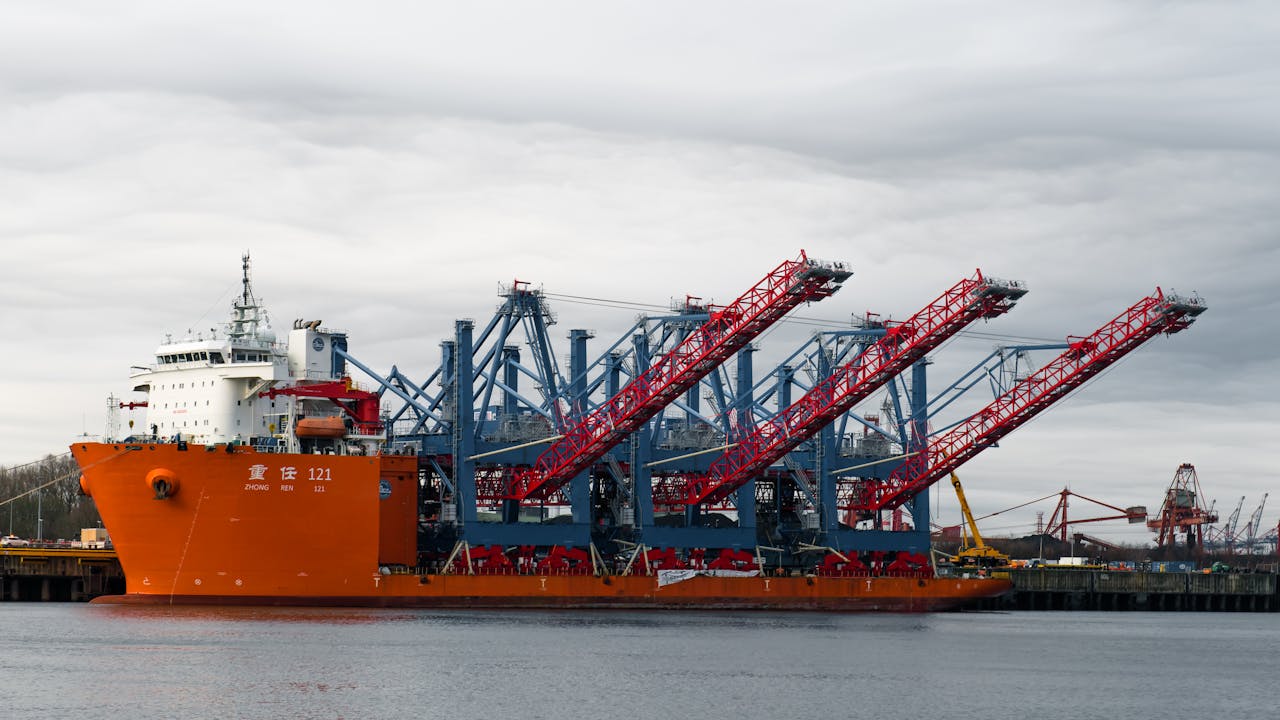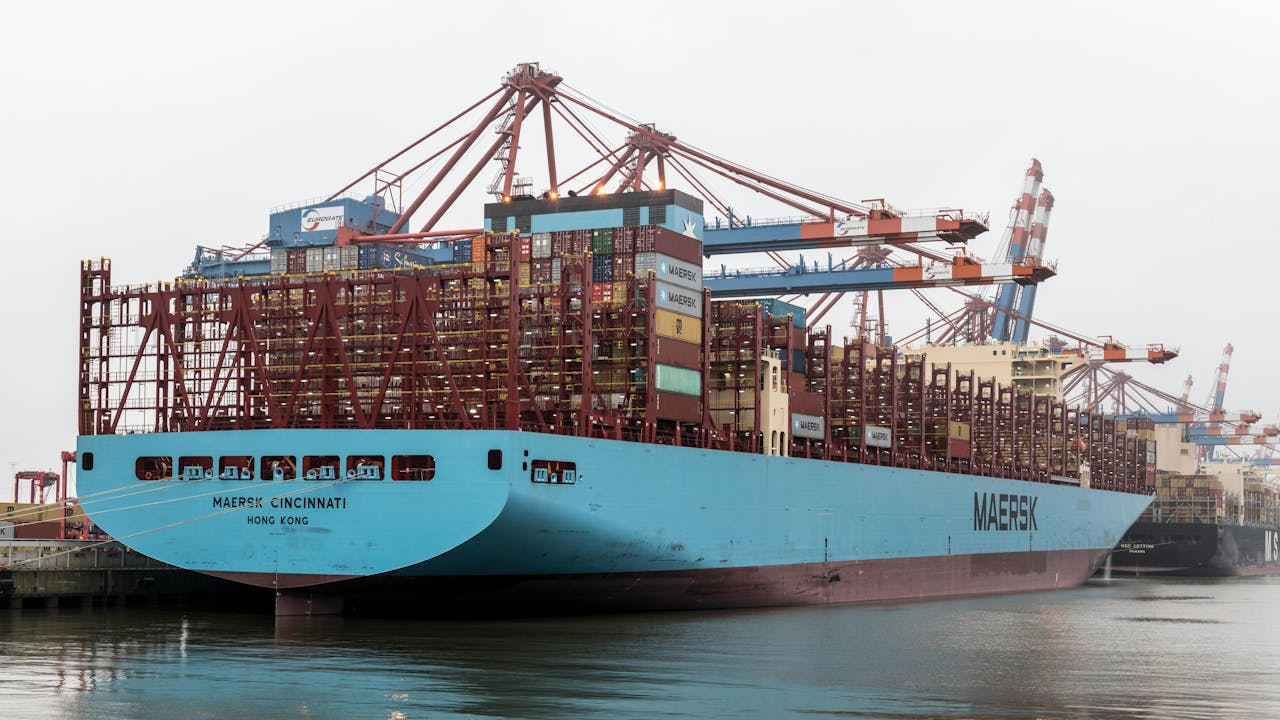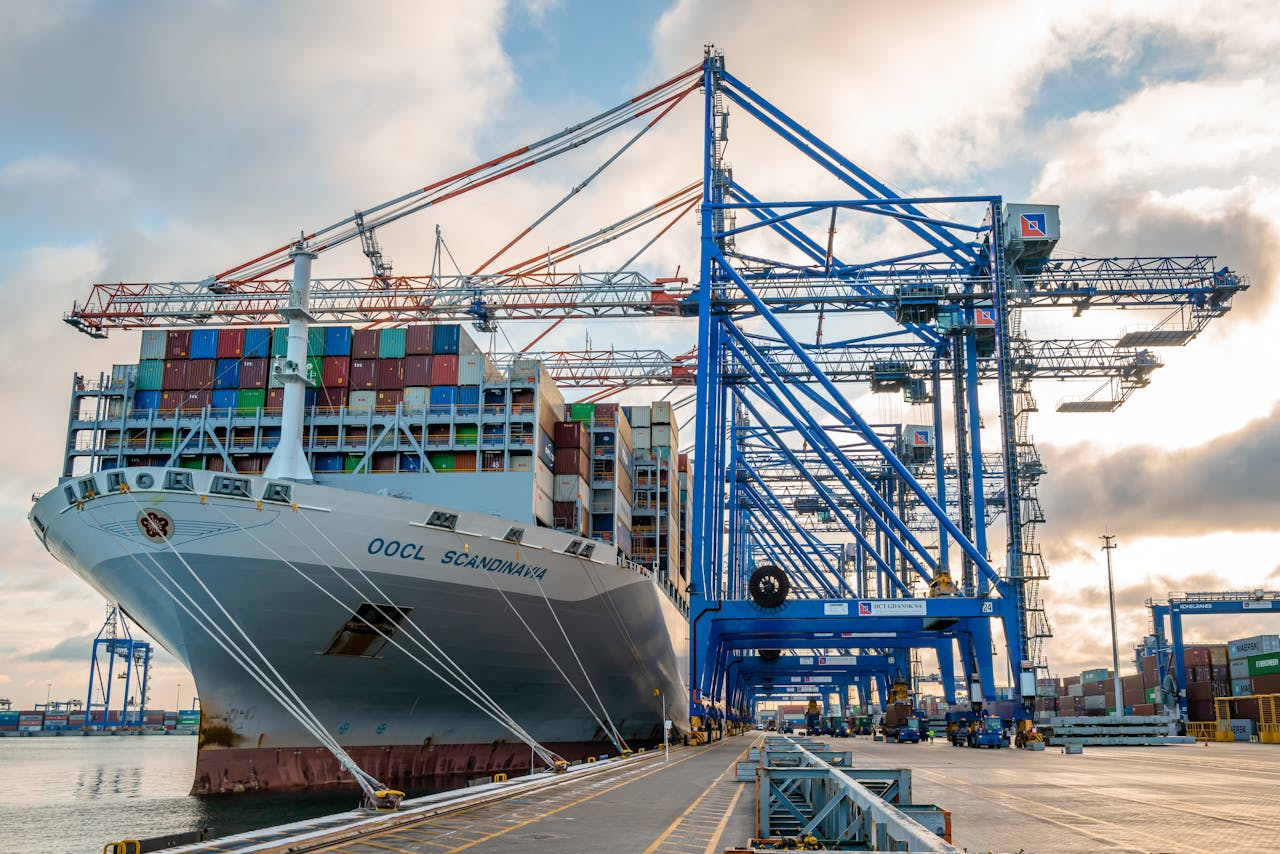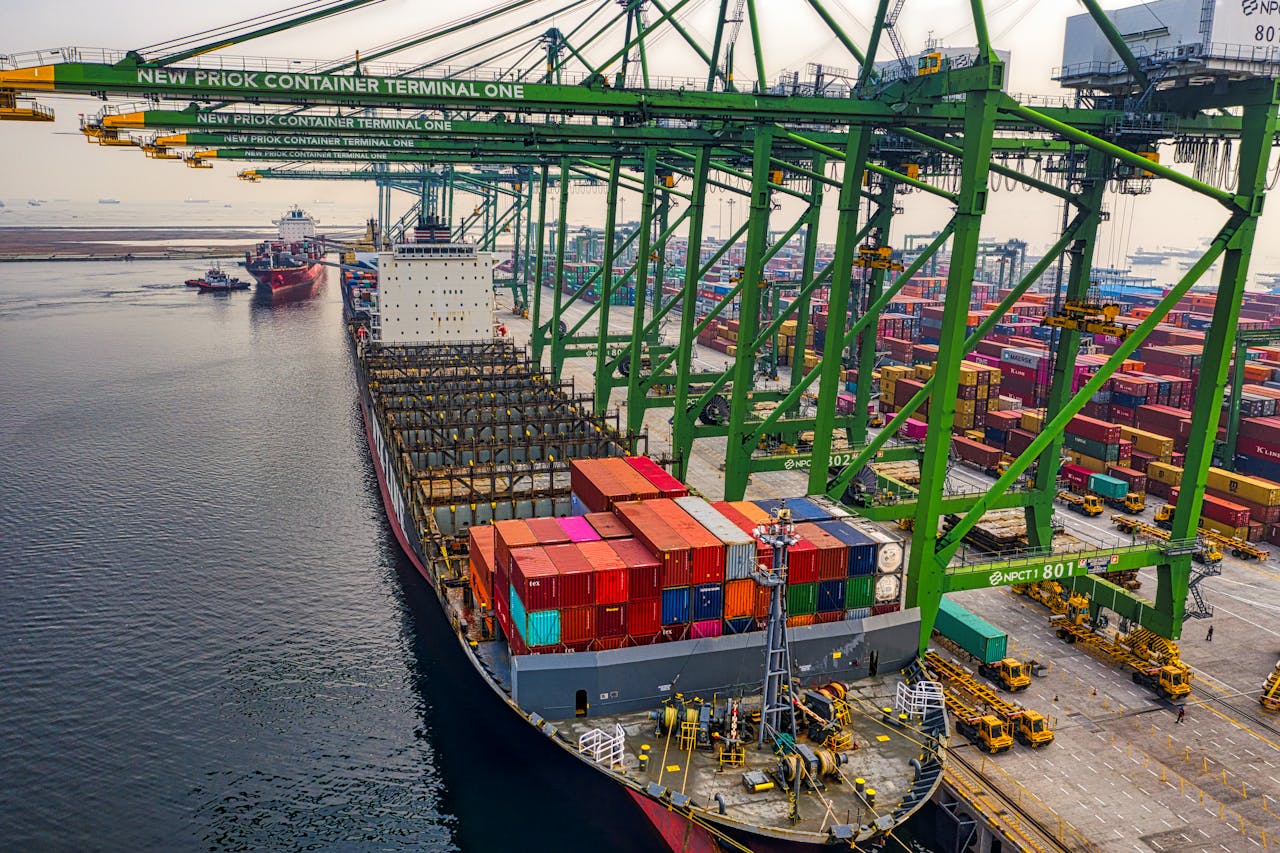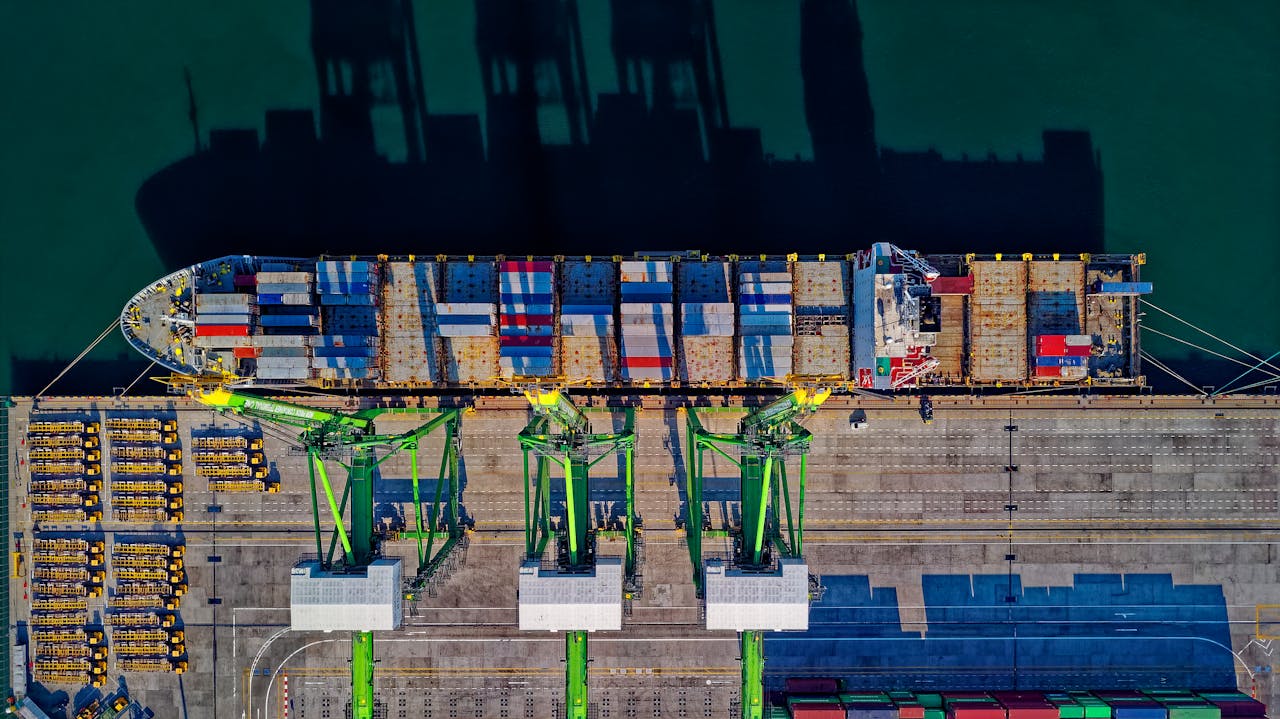Port And Shipping Administration Course
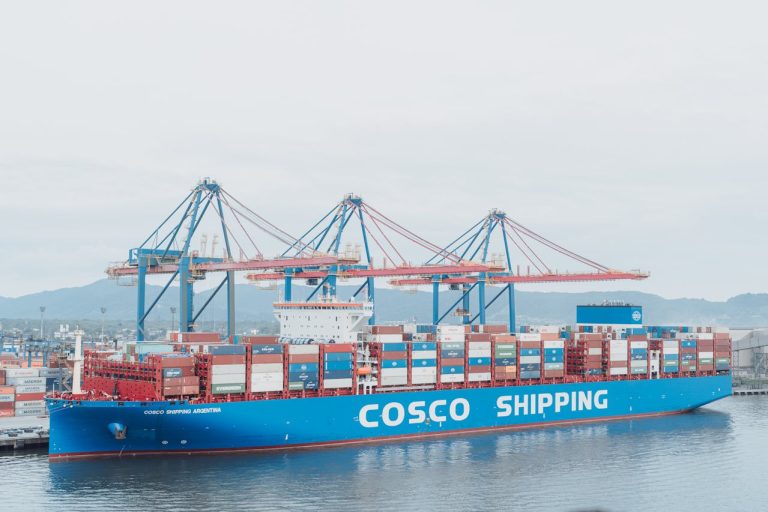
| Date | Format | Duration | Fees (USD) | Register |
|---|---|---|---|---|
| 10 Nov - 14 Nov, 2025 | Live Online | 5 Days | $3785 | Register → |
| 08 Dec - 12 Dec, 2025 | Live Online | 5 Days | $3785 | Register → |
| No upcoming Schedule available for this course. | Register |
|---|---|
| Take control of your schedule! Choose your preferred dates and locations. click the register button. | Register |
Did you know that effective port administration is crucial for ensuring operational efficiency, compliance with international regulations, and strategic management of port infrastructure, with ports serving as critical nodes in global logistics networks?
Course Overview
The Port and Shipping Administration course by Alpha Learning Centre is meticulously designed to equip professionals with essential skills in port governance, regulatory compliance, and strategic management. This course focuses on how professionals can effectively enhance administrative efficiency, improve coordination between port authorities and shipping lines, and develop strategic port management skills to ensure comprehensive operational excellence in modern port environments.
Why Select This Training Course?
Selecting this Port and Shipping Administration Course offers numerous advantages for professionals involved in port management and logistics coordination. Participants will gain advanced knowledge of port governance models, regulatory frameworks, and strategic port management techniques. The course provides hands-on experience with industry-standard port management tools and real-world case studies, enabling attendees to optimise their port operations strategies effectively.
For organisations, investing in this training enhances overall operational efficiency and ensures better alignment with global logistics standards. Research indicates that implementing comprehensive port management frameworks results in enhanced ability to manage complex logistics processes and improve customer satisfaction. According to industry experts, ports play a crucial role in facilitating international trade, requiring robust infrastructure and efficient operations to maintain competitiveness.
For individuals who complete this course, there are significant career benefits. This training enhances professional profiles by providing specialized skills in port governance, regulatory compliance, and strategic management, which are highly valued by employers in the maritime industry. Studies show participants gain advanced knowledge of port governance models, regulatory frameworks, and strategic port management techniques, aligning with international standards like the ISM Code, which emphasizes the importance of safety management systems in maritime operations. By investing in this training, individuals can significantly enhance their career trajectory and personal development, positioning themselves as experts in port administration and logistics management.
Transform your port management capabilities – Register now for this critical advanced training programme!
Who Should Attend?
This Port And Shipping Administration Course is suitable for:
- Port administrators and regulatory officials
- Shipping line executives responsible for port interactions
- Customs and port security personnel
- Logistics and transport planners in port-centric operations
What are the Training Goals?
The objectives of this course are to enable professionals to:
- Enhance administrative efficiency in port operations
- Improve coordination between port authorities and shipping lines
- Ensure compliance with port and maritime regulations
- Develop strategic port management skills
- Optimize port services and infrastructure utilization
How will this Training Course be Presented?
The Port and Shipping Administration Course delivers comprehensive, hands-on training through proven methodologies designed to maximise learning outcomes and practical skill development. Our expert instructors employ the following methods:
- Interactive workshops on port administration
- Case studies of port governance and management
- Simulations of port operations and regulatory compliance
- Discussions with port authority experts
- Practical exercises in port planning and policy
Each delivery method is carefully integrated to ensure participants gain both theoretical knowledge and practical experience. The course structure promotes active engagement and real-world application, allowing participants to develop crucial analytical and strategic skills within a supportive learning environment.
Join us to experience this dynamic and effective learning approach – Register now to secure your place!
Course Syllabus
Module 1: Port Governance and Organizational Structure
- Different models of port governance
- Roles and responsibilities within port administration
- Structuring for efficiency and transparency
- Public-private partnerships in port management
- Decision-making processes in port authorities
Module 2: Regulatory Framework for Ports
- National and international port laws and regulations
- Compliance with IMO, ILO, and other maritime bodies
- Customs and trade facilitation regulations
- Environmental and safety regulatory requirements
- Legal frameworks for port concessions and leases
Module 3: Port Operations and Service Coordination
- Coordination of port services from berthing to departure
- Management of port traffic and berth allocation
- Pilotage, towage, and other marine services
- Interaction with shipping agents and lines
- Optimization of port service delivery
Module 4: Port Security and Safety Management
- ISPS Code implementation and port security plans
- Safety management systems specific to port environments
- Emergency response planning for port incidents
- Health and safety regulations for port workers
- Security measures for cargo and vessel safety
Module 5: Financial Management of Ports
- Revenue streams for port authorities
- Cost control and budget management in port operations
- Tariff structures and pricing strategies
- Financial reporting and accountability
- Investment in port infrastructure and equipment
Module 6: Environmental Management in Ports
- Environmental impact assessments for port activities
- Pollution control and waste management strategies
- Compliance with environmental permits and certifications
- Sustainable port practices and green port initiatives
- Noise and air quality management in port areas
Module 7: Human Resource Management in Port Administration
- Staffing and skill requirements for port operations
- Training and development programs for port personnel
- Labor relations and union negotiations in ports
- Performance evaluation and incentive systems
- Health, safety, and welfare considerations for port staff
Module 8: Port Marketing and Customer Service
- Marketing ports as trade and logistics hubs
- Customer relationship management in port services
- Service level agreements with shipping and logistics companies
- Feedback mechanisms and service improvement
- Branding and promotion of port capabilities
Module 9: Information Technology in Port Management
- Port community systems and digital integration
- IT systems for operational efficiency and data management
- Cybersecurity in port operations
- Digital tools for port planning and simulation
- Real-time tracking and reporting systems
Module 10: Infrastructure Development and Maintenance
- Strategic planning for port infrastructure
- Maintenance strategies for port facilities
- Project management for port expansions and upgrades
- Dredging operations and channel maintenance
- Managing infrastructure under different weather conditions
Module 11: Customs and Trade Facilitation
- Customs procedures and documentation in ports
- Trade facilitation strategies to enhance port efficiency
- Inter-agency cooperation for seamless cargo movement
- Electronic data interchange (EDI) for customs
- Handling of special cargoes like perishables or hazardous materials
Module 12: Crisis and Incident Management
- Developing crisis management plans for ports
- Incident response strategies for port disruptions
- Communication protocols during crises
- Business continuity planning for port operations
- Post-incident analysis and learning
Training Impact
The impact of port and shipping administration training is evident through various real-world case studies and data, which demonstrate the effectiveness of structured programmes in enhancing operational efficiency and logistics reliability.
Research indicates that professionals with strong port management skills can significantly improve organisational outcomes. According to industry experts, companies that implement robust port management systems experience tangible benefits including improved operational efficiency, reduced costs, and enhanced compliance with international maritime standards.
These case studies highlight the tangible benefits of implementing advanced port management techniques:
- Improved operational efficiency through streamlined processes
- Enhanced coordination with shipping lines and regulatory compliance
- Increased competitiveness through strategic port development and innovation
- Strengthened compliance with global logistics standards
By investing in this advanced training, organisations can expect to see:
- Significant improvement in port operational efficiency
- Improved ability to handle complex logistics challenges
- Enhanced decision-making capabilities through strategic insights
- Increased competitiveness through comprehensive port management strategies
Transform your career and organisational performance – Enrol now to master Port and Shipping Administration!

